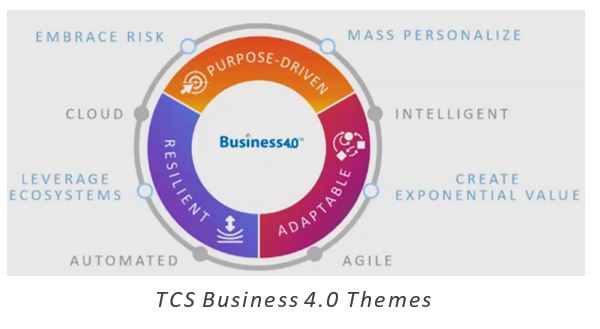


According to TCS, Business 4.0 is a framework of business behaviors that optimizes the digital advantage to create customer value. TCS has four business behaviors for digital leaders which include:
TCS rightly focused a significant part of its presentations on how it is helping companies operate remotely during a global pandemic. TCS has developed Secure Borderless Work Spaces (SBWS) that contained modules, such as SBWS Digital Workplace, SBWS Work Delivery, SBWS Adoption, SBWS Analytics, and SBWS infrastructure, among others. A key point mentioned by TCS is the belief that agile and “machine first” are two key concepts that enable companies in any industry to be resilient and adaptable enough to not only survive, but thrive, during this unprecedented once-a-century global pandemic. An example is how the recent COVID-19 pandemic served to further exacerbate the demand-supply equilibrium that was placing a ceiling on oil & gas prices and compressing margins for most companies operating in the associated markets. ARC realizes that any end user organization embarking on their journey towards digital transformation will require a strong and adaptable technology core. According to ARC, this is not feasible in most cases without working with a strong technology partner that possess both complex systems integration capabilities and deep domain expertise in the client’s industry.
TCS executives provided an update on the progress of its artificial intelligence (AI) platforms:
These technologies focus on enhancing business resilience for enterprises enabled by SBWS. The use cases discussed included a southeast Asian national oil company for which TCS established a fuel retailing solution. TCS created a demand forecast predictive model that enabled dynamic competitive pricing for the commercial dealer segment. In another use case, TCS integrated a modernized analytical platform in the cloud for a global aluminum producer enabling the client to realize material operational performance enhancements. The use cases presented mostly relied on a machine first delivery model that leveraged immersive analytics and AI solutions with a deployment model using on-premise, cloud, PaaS, or IaaS approaches depending on the client needs and what provides the most value.
TCS concluded the analyst event by highlighting its Bringing Life to Things Framework, which combines physical context and digital intelligence to enable pervasive, predictive, self-aware, and connect in context. For Damen Shipyards Group, TCS developed a connected vessel platform using remote data for fuel optimization, vessel planning, maintenance management, and more.
ARC research shows that strong systems integration partners, such as TCS, enable companies to achieve step-function increases in value and operational excellence with the advanced technologies, complex systems integration, relevant domain expertise, and an understanding of key industry-specific business processes.

